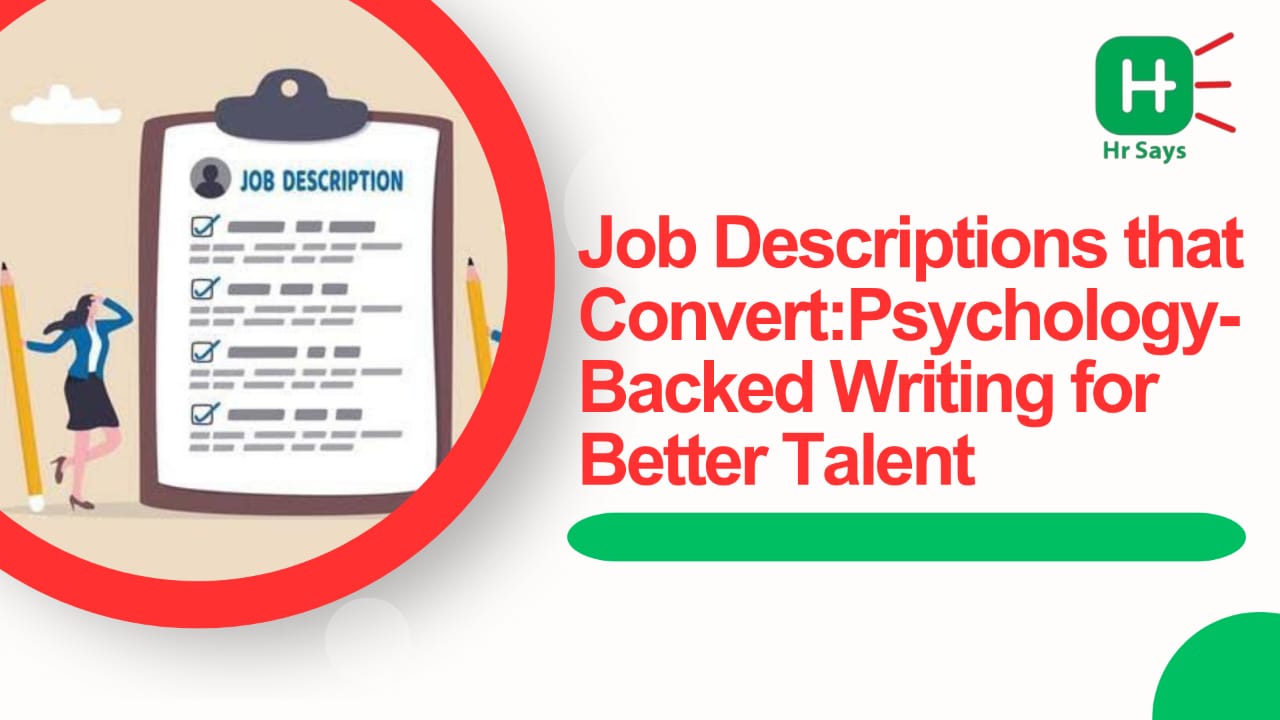Ever scrolled past a job ad and felt... nothing? You're not alone. The best candidates do it too. And that’s the problem.
A job description isn’t just a list. It’s a pitch. It’s persuasion. Done right, it pulls the right people in—without the need for buzzwords or gimmicks.
Words Shape Minds—And Applications
People don’t read job posts. They skim. They scroll. They look for signs.
And here’s what catches their eye:
● Clear titles over clever ones (“Growth Hacker” gets skipped. “Digital Marketing Specialist” gets clicks.)
● Short sentences. The brain prefers white space. So do tired eyes.
● Direct benefits. Don’t just say “competitive salary.” Say what it covers. Or how it supports.
Psychology says attention is earned in seconds. A cluttered post loses it fast. A focused one holds it just long enough.
Emotion Moves Action
People apply when they feel seen. Not when they feel sold to.
Instead of listing duties like commands, show the impact:
● “Manage social media” becomes
○ “Help shape how 500K people see our brand every day.”
● “Handle reports” becomes
○ “Keep leadership in sync with data that drives real decisions.”
When people can picture the value they’ll bring, motivation builds.
Words that paint meaning > Words that just explain.
Fear Repels Talent
Some descriptions feel like a test. Loaded with must-haves. Stacked with demands. Sprinkled
with vague threats: “Only serious applicants.” “We don’t accept mediocrity.”
That may scare away bad hires. But it also scares away great ones. Especially women,
minorities, or career-switchers—groups more likely to self-select out if they don’t meet 100%.
Soften the edge. Keep expectations high, but human:
● Replace “must be an expert in X” with
○ “experience in X is valuable; we support growth.”
● Drop unnecessary jargon or internal acronyms. You’re not recruiting robots.
Design Is Half the Battle
Psychology isn’t just about words. It’s about layout.
● Use bullet points.
● Avoid walls of text.
● Break into clear sections: About the Role, About You, What We Offer.
Give them room to breathe. Then they’ll want to read.
Conclusion
A job description isn’t paperwork. It’s the first handshake. It signals who you are—and how you
think.
Clarity attracts. Kindness retains. And when both are built into your words, conversion follows.
Because in the end, it’s not about filling roles—it’s about finding people.

 Most job descriptions are written. Few are read. Even fewer convert. Understanding the psychology of attention, emotion, and clarity can turn your job posts into magnets for the right talent.
Most job descriptions are written. Few are read. Even fewer convert. Understanding the psychology of attention, emotion, and clarity can turn your job posts into magnets for the right talent.








.jpeg)
.jpeg)

.jpeg)





.jpeg)



.jpeg)

.jpeg)



